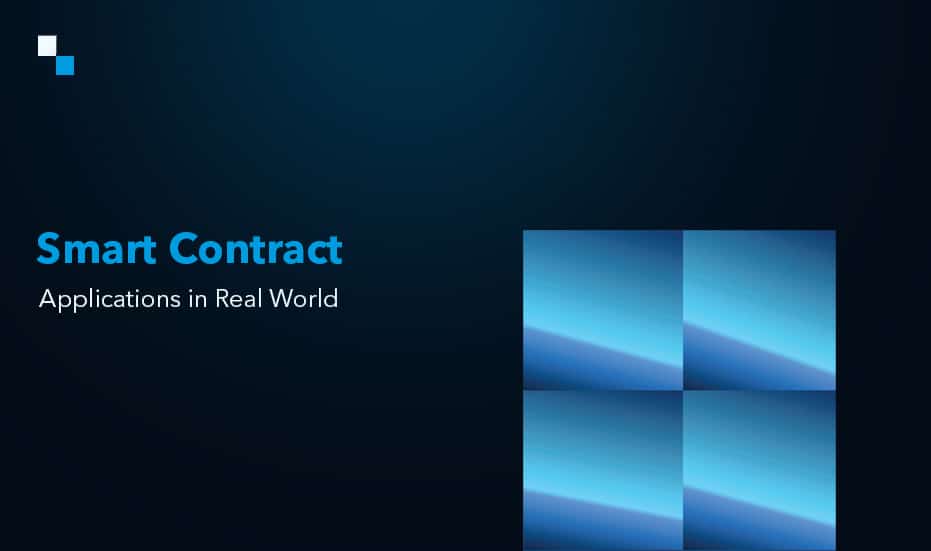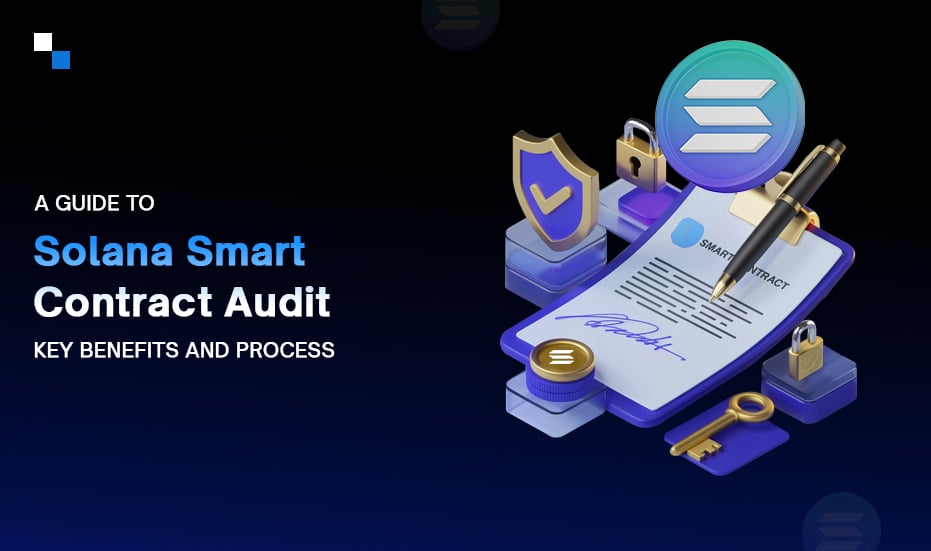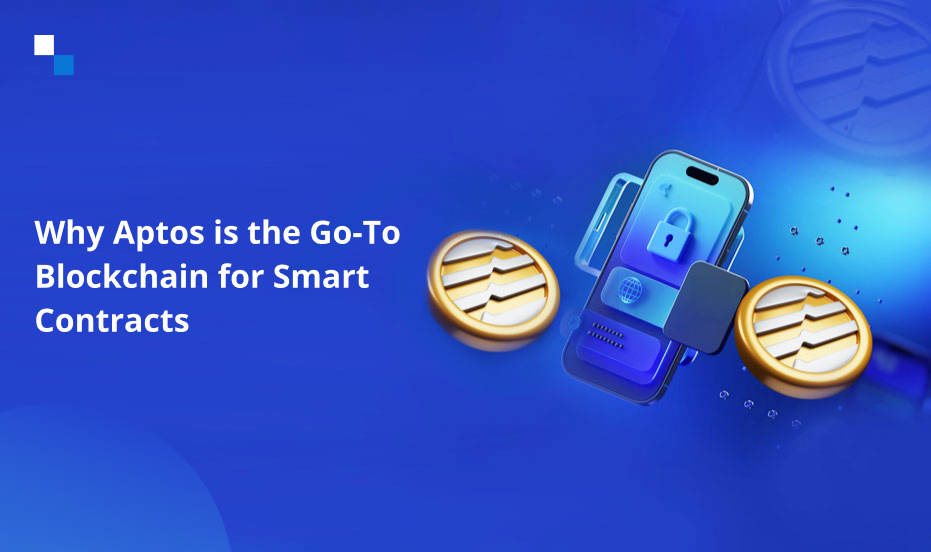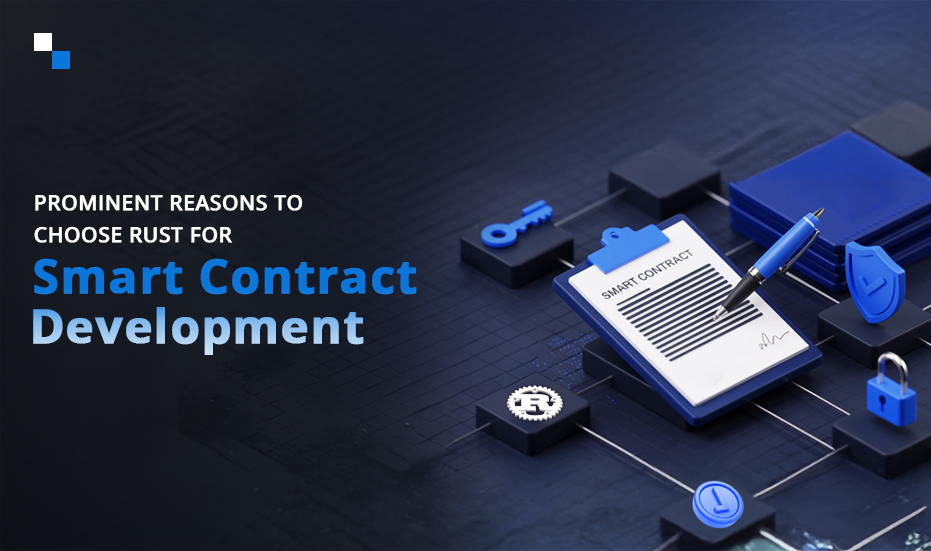
Building Secure Peer to Peer Lending Platform Software
December 29, 2023
Top 10 Startups Revolutionizing the Supply Chain Industry with Blockchain
January 2, 2024Smart contracts, the digital agreements that automatically execute predefined actions on blockchain networks, have evolved from just being lines of code to practical tools that have a tangible impact across various industries. Let us gain an insight into the real-world applications of smart contracts and how smart contract development is reshaping supply chain management, finance, real estate, and healthcare.
Revolutionizing Supply Chain Management
Smart contracts are proving instrumental in revolutionizing traditional supply chain management while addressing long-standing issues, such as inefficiencies, lack of transparency, and delays.
- Traceability and Provenance
Smart contracts create immutable records on the blockchain and enable transparent tracking of the journey of a product. This not only reduces the risk of counterfeit products but also enhances consumer trust by providing an unalterable history of the product’s origin.
- Automated Payments and Smart Logistics
Smart contracts minimize delays and disputes in the supply chain by automating payment processes and optimizing logistics. With smart contract development, supply chain companies can ensure efficient delivery schedules and routes, ultimately reducing costs and enhancing overall efficiency.
Democratizing Finance through Decentralized Finance (DeFi)
Smart contracts are reshaping the financial landscape through decentralized finance (DeFi). They eliminate traditional intermediaries and drive financial inclusion.
- Decentralized Lending and Borrowing
Smart contracts enable peer-to-peer lending and borrowing and democratize access to financial services. This is particularly beneficial for individuals who are unbanked or underbanked.
- Automated Trading and Yield Farming
Smart contract-powered decentralized exchanges and automated trading platforms enable secure trading of digital assets. Companies offering yield farming services leverage smart contract development to automate the process of lending and borrowing, thereby allowing users to earn yields on their cryptocurrency holdings.
Real Estate and Tokenization
The real estate sector is embracing smart contract development services to leverage tokenization and fractional ownership.
- Fractional Ownership
Smart contracts allow for the division of real estate assets into digital tokens, enabling fractional ownership. This democratizes real estate investment, opening up opportunities for a broader range of individuals.
- Efficient Transactions and Reduced Intermediaries
Smart contract development reduces the need for intermediaries, which leads to easy and quick transactions.

Improving Healthcare with Smart Contracts
In healthcare, where data security and interoperability are critical, smart contracts offer solutions to longstanding challenges.
- Patient Data Management
Smart contracts enable secure and interoperable management of patient data. With patient data encoded in smart contracts, healthcare providers can access relevant information securely and in real-time. It also helps enhance the quality of care.
- Streamlining Insurance Processes
Insurance companies are partnering with a reliable smart contract development company to encode their insurance processes in smart contracts. The level of automation enabled by smart contracts simplifies insurance claims and reduces process time and the risk of fraud.
Challenges and Considerations
The real-world applications of smart contracts are promising, yet there exist certain challenges that need to be addressed.
- Scalability
The existing blockchain infrastructure sometimes faces limitations in transaction throughput and speed, which prevents seamless integration of smart contracts into large-scale systems.
- Regulatory Compliance
The legal and regulatory landscape surrounding smart contracts is still evolving. It can be a hurdle in widespread adoption of smart contracts, especially in highly regulated industries.
- User Education
The complexity of blockchain technology and smart contracts can be a barrier to adoption. It is important to ensure that end-users understand the benefits of smart contracts for successful integration.
The Future Landscape
As smart contract development continues to bridge the gap between code and real-world impact, the future seems promising.
- Interoperability
Achieving interoperability between different blockchain networks will enable new levels of efficiency and collaboration in real-world applications.
- Hybrid Solutions
New and innovative solutions are bringing together the best of both blockchain and traditional technologies. The goal is to tackle challenges related to handling more transactions and meeting regulatory requirements. These hybrid solutions aim to make the most of the advantages offered by smart contract development, all while ensuring scalability and compliance with established rules and regulations.
- Integration with IoT and AI
The integration of smart contracts with IoT devices and AI systems opens new opportunities. This collaboration means that decisions can be more informed and adaptable, making a bigger impact across different industries.
In Conclusion
Smart contracts are not just lines of code; they are a transformative force shaping real-world applications. From supply chains and finance to real estate and healthcare, their impact is tangible and far-reaching. The journey beyond the code is one of innovation, collaboration, and a fundamental reshaping of the way we see and engage with the world around us.
Why Antier for Smart Contract Development?
At Antier, we have a team of experienced blockchain engineers who build secure smart contracts for diverse business use cases. Whether you want to develop a smart contract for healthcare, insurance, finance, gaming, real estate, or any other industry, we will provide you with customized, end-to-end smart contract development services. Besides, we also offer diligent audits of smart contracts to make sure they are free from any loopholes that can impact the performance of your application.
Connect with our smart contract development company to build a smart contract optimized for enterprise-grade security and performance.



